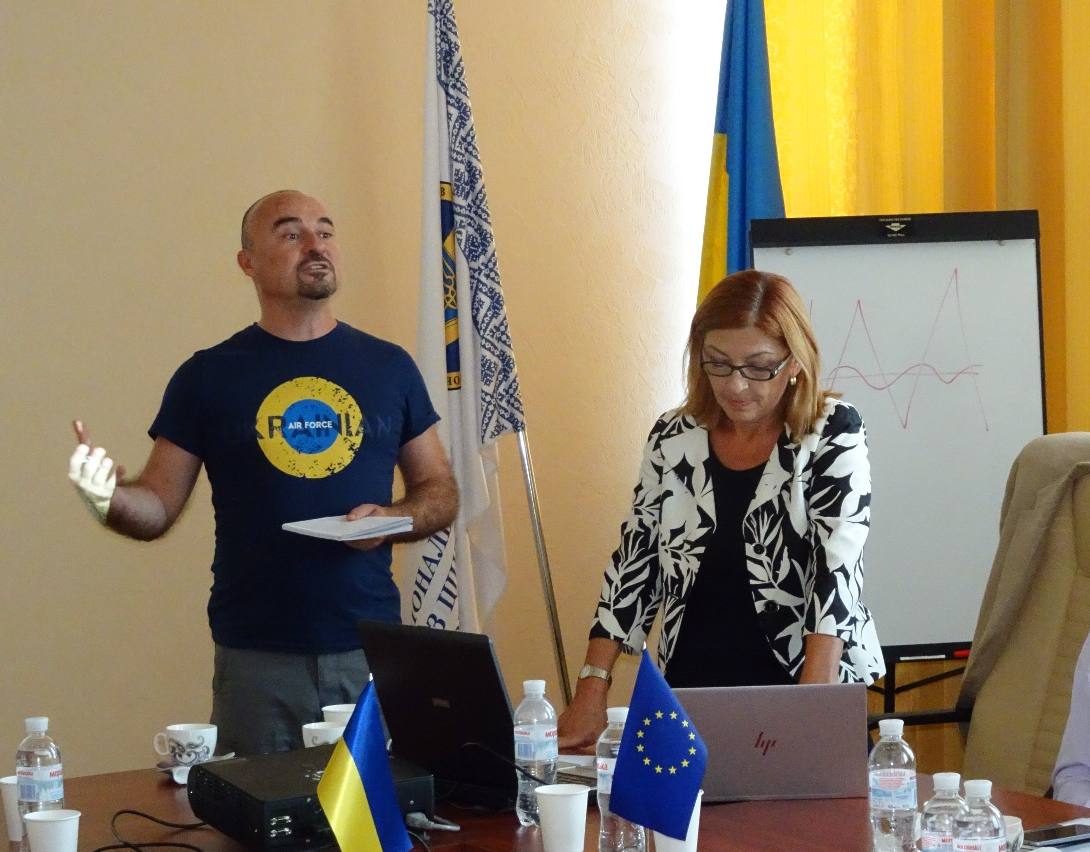Russia’s invasion dealt a massive blow to Ukraine’s economy, but for Ukraine to fund its warfighters and its postwar reconstruction, it must have a sound financial sector ready to support commercial activity and rebuilding. And that financial sector must go beyond and complement traditional banking. However, Ukraine's non-bank financial sector—encompassing everything from securities, credit unions, and pension funds to leasing and insurance—has long faced challenges that pre-date the invasion of 2022.
Notably, a sector comprising literally thousands of institutions was held back by fragmentation, undercapitalization, and inadequate governance, which in turn eroded trust among consumers and hindered the development of non-bank financing options.
In line with other attempts to assist Ukraine in implementing its financial reforms, the European Union commissioned the Strengthening the Regulation and Supervision of the Non-Bank Financial Market (EU-FINREG) project. Focused on addressing legal, regulatory, and structural barriers, FINREG has helped instill resilience, transparency, and investor confidence in Ukraine's non-bank financial sector.
A Troubled Landscape
When FINREG was launched in 2017, approximately 88 percent of Ukraine’s financial assets were controlled by banks (prone to their own systemic weaknesses). Outside the banking sector, financial services providers were struggling. Ukraine’s securities industry, which included about 850 market players before the launch of the reform, was characterized by underdeveloped retail operations and limited investor protections. The equity market was stagnant, overshadowed by the dominance of Eurobonds. Stock exchanges suffered from low liquidity and insufficient transparency. Private pension funds languished under an underdeveloped regulatory framework. Leasing failed to reach its potential thanks to unfavorable legislation, while the insurance sector—representing some 323 companies—showed low penetration and undercapitalization, with household and motor insurance dominating the landscape, even as life insurance lagged.
Despite the efforts of non-bank regulators to emulate reforms similar to those seen in the banking sector, their progress was hindered by weak enforcement powers and inadequate funding.

Consolidating the Sector, Building Trust
“FINREG was especially effective in ensuring that regulations and laws governing non-banking institutions—and the oversight of the regulators—are properly introduced and in line with international standards,” said Team Leader Mira Eric Jovic.
Since 2017, the project has supported 16 laws, comprising 14 new laws and two amendments. Notably, the Split Law was instrumental in consolidating financial sector supervision, as reflected in the dissolution of the National Commission for State Regulation of Financial Services Markets and redistribution of its regulatory responsibilities between the National Bank of Ukraine (NBU) and the National Securities and Stock Market Commission. This reallocation made regulatory oversight and risk assessment more effective and proactive, reducing systemic risks and strengthening the financial market’s stability and integrity.
Other crucial legislation facilitated by FINREG includes the Law on Financial Services Markets , the Law on Insurance, the Law on Capital Market and Organized Commodity Market, the Law on Joint Stock Companies, and various amendments to NBU regulations. All in all, these new legal frameworks have safeguarded consumers' interests by requiring fair and ethical practices and mandating transparent and ethical behavior by financial service providers.
Complementary measures to strengthen by-laws, internal supervisory procedures, and reporting models for non-bank financial institutions (NBFIs) have fortified the non-bank regulatory landscape.
One critical result of these regulatory enhancements is a substantial consolidation in the sector, as weaker players succumb to more stringent regulatory requirements and the remaining players grow in capability and capitalization. From 2017 to April 2023, for example, the total number of NBFIs under NBU jurisdiction fell by 38.6 percent (from 2,230 to 1,368) as a result of license revocations and voluntary liquidations. Simultaneously, the total assets of key NBFIs—including finance companies, insurance vendors, credit unions, and even loan operations like pawnshops—increased by more than 87.3 percent. And this was achieved despite the Russian invasion at the end of the period.
Strengthening Transparency and Supervision
Transparency is a cornerstone of consumer protection in the financial sector. To enhance supervisory regulation of NBFIs and ensure investor protection, FINREG experts devised numerous risk-based supervisory systems, including an early warning system, reorganization and liquidation procedures, on- and off-site supervision processes, licensing protocols for NBFIs, corrective measures, risk mapping, and credit risk management.
The project helped Ukrainian institutions create reporting systems for sectors such as insurance, credit unions, and leasing, covering areas like pawnshops, financial guarantees, payment instruments, and compliance with regulatory frameworks including FINREP (Financial Reporting) and COREP (Common Reporting), which are mandated by the European Banking Authority to harmonize financial reporting requirements for institutions across the European Union. To safeguard personal information and reduce the chances of data misuse and fraud, FINREG played a key role in creating the NBFI Cybersecurity Risk Self-Assessment pilot project, which aims to assess both the IT security and IT management practices of all NBFIs in Ukraine.
Communication and Awareness Raising
While innovation, entrepreneurialism, and technological advancements in the financial arena lead to new services and greater choice for consumers, they can also make for increasingly complex products and services, making it challenging for consumers—and regulators—to keep pace.
"The complexity of some non-bank financial products is a challenge,” said Jovic, the FINREG Team Leader, who stressed the primary importance of financial literacy. “To choose wisely from the variety of available products and providers and avoid exposure to unexpected costs, consumers must have the knowledge and information necessary to understand the concepts and characteristics of financial products and services."
FINREG played a pivotal role in enhancing financial literacy among the general public, conducting five high-impact multimedia campaigns, including Know Your Rights, Brave Hryvnia, Cashless, ShahrajGudba (against financial fraud), and a campaign focused on insurance services. The "Cashless" campaign, for example, reached 3.4 million people.
Similarly, FINREG equipped NBU top-speakers and Board members with media relations skills and strengthened the National Securities and Stock Market Commission’s communication function, enabling it to share insights into market developments and reforms through blogs, interviews, and social media.
FINREG was completed with a strong tally of achievements: fewer but stronger NBFIs, enhanced transparency, better protected consumers, and greater financial literacy. Those attributes bode well as the Ukrainian people look to the enormous challenges ahead.





